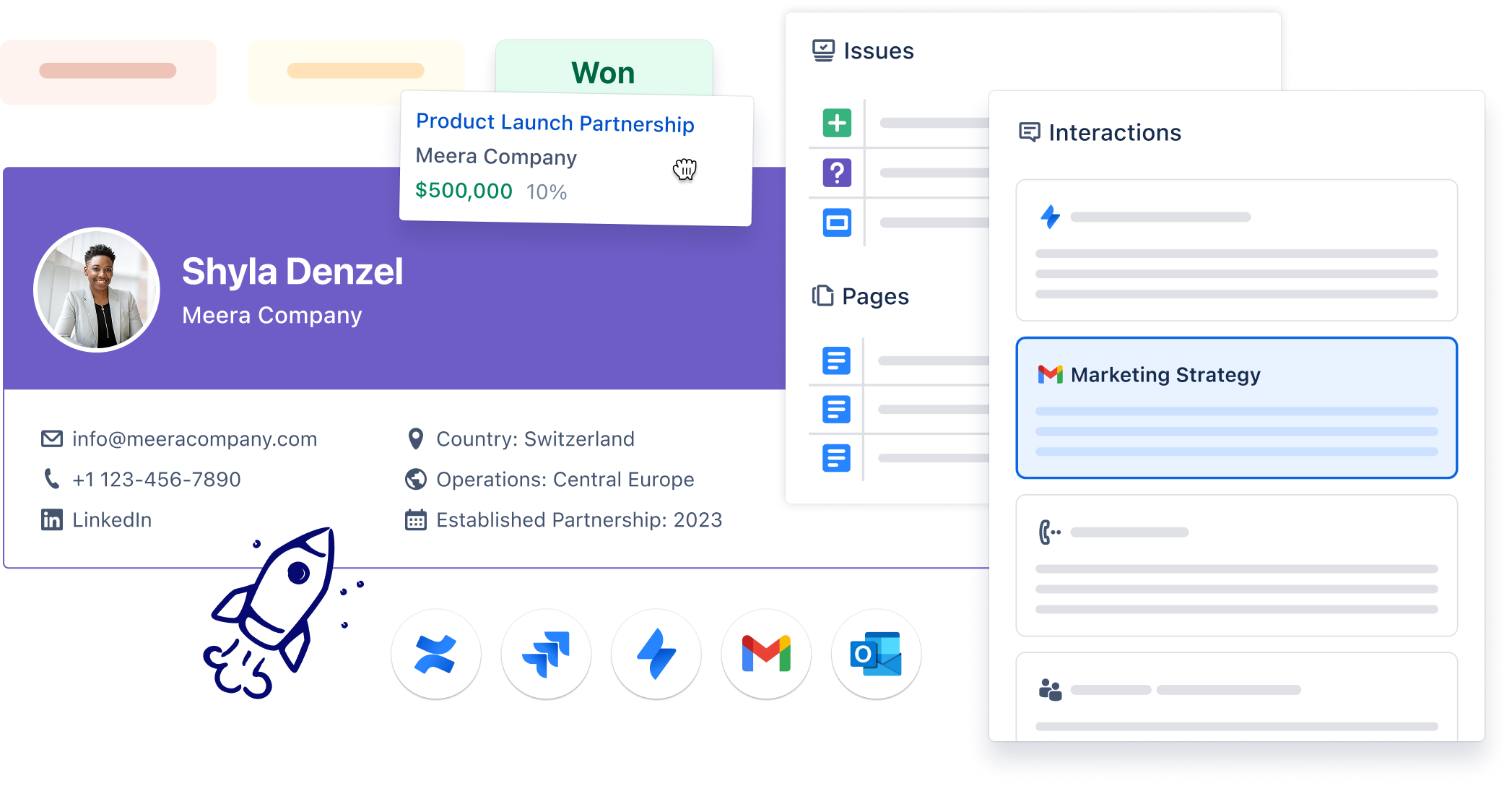
Dilara Erecek
Product Marketer
When people talk about relationships, they usually mean the personal kind, date nights, texts, anniversaries. But in business, relationships matter just as much!
Because customers don’t usually leave over a single bug or a late reply. They leave when they feel like they don’t matter. When they feel like you’ve forgotten them.
Sales makes a promise, support handles the fallout, product hears a request. Everyone nods, everyone moves on.
It’s not that people don’t care. It’s that the story gets scattered. A ticket lives in Jira, meeting notes live in Confluence, and maybe there’s something typed in a CRM that only sales touches.
Without context, your customer ends up reintroducing themselves every time. And that’s when relationships start to fray. Every now and then someone asks: so, is Jira a CRM? Not really. Jira was built for tracking work, issues, tickets, agile boards, not for managing customer accounts.
But here’s the funny thing: Jira already knows a lot about your customers. Every bug report, feature request, and support ticket is part of the relationship. Atlas CRM connects those details and adds the missing pieces—like accounts and contacts and sales opportunities—so you can see the whole story.

If Jira is where the action happens, Confluence is where the notes live. Account plans, onboarding guides, meeting recaps, they’re all part of the customer relationship too.
The problem is, those pages often float around without being tied back to the customer they belong to. Which means they get lost at the exact moment they’d be useful.
Imagine you’re preparing for a meeting with a customer and you need the latest project documentation, your team’s notes, or project updates. Or think about when you’re managing multiple customers/accounts and suddenly need to jump on a call with one of them, you end up searching through Confluence trying to collect everything related to that customer.
Now, how great would it be if instead you could simply open the right customer or company profile and instantly see a complete overview in one place? Especially when you’re in a rush, it saves you from having to dig around everywhere to piece together the customer’s data.
Atlas CRM for Confluence changes that. A doc isn’t just “Notes from kickoff”—it’s “Notes from kickoff with Company Skyline Aero.” The connection is what makes it part of the relationship, not just another document in the pile.

Most CRMs are built for managers. They look great on a dashboard but don’t fit into everyday work.
The result? A half-empty system full of fields no one updates. Which means when it’s actually needed, the story is incomplete.
Atlas CRM avoids that trap by living natively in Jira and Confluence. Where your team already works. Where they already update issues and write pages. No double entry. No nagging reminders. Just context that’s already there.
People sometimes search for a Jira CRM integration hoping it will solve the problem. Most of what they find are tools that sync a few contacts or emails but don’t give a complete view.
Atlas CRM works differently. It links accounts and contacts directly to work items, support tickets and pages. So when support sees a ticket, they also see the account behind it. When sales gets ready for a renewal call, they can see the Jira history. When product reviews a request, they know which customer asked for it.
That’s the kind of connection that actually strengthens relationships.

Customers don’t care what system you use. They care that you remember them.
Good relationships—whether personal or business—are built on remembering the details. Listening. Following through. Showing up the next time with context.
That’s what Atlas CRM gives your team by tying Jira and Confluence to the customer story. Not a new tool to learn, but a memory your teams can lean on.
So no, Jira isn’t a CRM on its own. But with Atlas CRM, it becomes something close to the best version of one:
Because in the end, the best CRM isn’t the fanciest one. It’s the one your team actually uses.
And that’s why good relationships matter. Not just in romance, but in business too.
If you still don’t have Atlas CRM, try it out now! Start your free trial in the Atlassian marketplace. Check out our documentation for more information or contact us via our support channel.
